First Results From The European Edtech Ecosystem Map (Copy)
The European Edtech Alliance (EEA) has today published the first data insights from the interactive Edtech Map, launched in 2022. The report provides a snapshot of the 1.258 companies throughout Europe that have contributed to the Map so far and reveals trends that can serve to inform policy, development and implementation strategies. From the vast majority of Edtech organisations actually being Micro Organisations in size, to the fact that just under half of all organisations have no international sales, or to the extreme disparities in funding, team make-up and company leadership between genders, the inaugural Map insight report shows emerging trends in the map data and highlights areas needing sustainable support within this essential sector.
"The past years have shown us the vital importance of sustainable digital education practices. Although Europe boasts so many wonderful Edtech innovations, Europe has not yet reached the position on the global stage, which it could take", says Beth Havinga, Managing Director of the EEA. “The initial data from the Edtech Map allow us to explore reasons for this and start suggesting solutions to some of the more common issues”.
60% of Edtech companies are micro-sized, only 12,4% founded by women
“Our Map data shows that just over 60% of all mapped companies report that they have 10 or less employees, making them ‘Micro’ enterprises and yet the majority of funding, support and procurement structures are geared towards larger companies or organisations. This highlights the precarious nature of the edtech market and the need for sustainable structures”, continues Beth Havinga.
Mirroring a trend in tech funding across all sectors, “we see a considerable disparity not only between the amounts male and female founders of Edtech Organizations receive, but also in the gender of team makeup and company leadership”, says First Chair of the EEA board, Svenia Busson. “42,9% of mapped companies were founded by solo male and only 12,4% by solo female entrepreneurs and the gender divide becomes even more distinct in leadership teams with only 26,1% of CEOs of all mapped companies being led by women”.
Whilst the map does not yet represent the full breadth of the European Edtech ecosystem, it importantly identifies issues which can have an influence on this essential innovation ecosystem within Europe. In 2023, the EEA looks forward to expanding the Edtech map to include other types of organisations and increase representation from all local education environments within Europe.
About the European Edtech Alliance
The European Edtech Alliance (EEA) is a consortium of national trade associations and clusters working with founders and providers of education technology (edtech), to support the domestic and international growth of edtech and Innovation in education. Formed in 2019, the EEA represents 26o0 Edtech organisations within Europe sharing best practice, comparing research findings, development and policy insights, discussing common challenges and concerns and highlighting areas of opportunity. With a mission to support the growth of the European edtech sector and to connect and strengthen the pan-European Edtech ecosystem, the Alliance has two areas of focus: policy and regulations, and support for Edtech start-ups and scales-ups.
Read the full report here: www.edtecheurope.org/s/EEA-Edtech-Map-Insights-Report-2022.pdf
Contact
Beth Havinga
Info@edtecheurope.org
Damian Bartsch Cornelsen
Presse@edtecheurope.org

